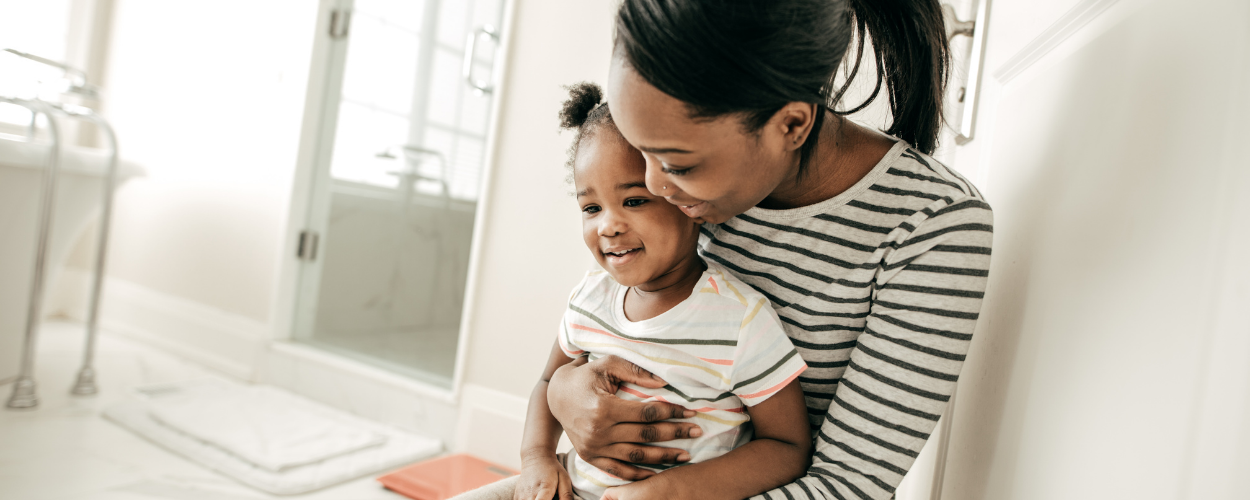The holidays are an amazing time of tradition, family, friends, and gathering. But as a parent, especially during these unprecedented times, you may have some concerns about keeping your baby and family safe. Establishing boundaries is a useful practice in many aspects of life, particularly for helping you and your family feel physically and emotionally well. However, boundaries can feel a bit tricky to implement.
Why?
Establishing boundaries can help protect you and your family not only from physical concerns like germs and personal safety, but from emotional challenges as well. Great aunt Susan probably means well when she tells you that you’re spoiling your baby by holding them so much but, it likely does not feel great as a parent to be challenged and may make you apprehensive to spend time with her. Establishing boundaries will increase your confidence level as a parent and make it clear that your choices are exactly that- your choices and not up for debate. You are protecting your emotional well-being and instilling confidence in your family that you are doing exactly what is right for your family.
How?
Just how exactly are you going to go about establishing boundaries around your family? There are some subtle and some more direct ways that you can go about it.
Keep baby close
Keep the baby close to you or away from others. This can be done with babywearing, a personal favorite of mine, or by keeping the baby in their stroller or car seat with an appropriate, breathable cover. This signals to others that the baby is resting and to keep their hands off! I personally love babywearing because it puts you in immediate proximity and control of your baby’s space. Plus, if any overly interactive people try to kiss the baby or touch their face, they have to enter into your personal space which is not only awkward but allows you to immediately step away or block with a hand. Bonus points for keeping the baby’s face nuzzled next to your body and away from potential germs.
No is a full sentence
If you have a new baby, chances are that everyone wants to hold the baby. You are under no obligation to allow anyone to hold the baby if you are not comfortable. Whether pandemic-related or just your own preference, it is absolutely ok to say no to anyone. “No” is a full sentence. Feel empowered to make the choices that work for you. I have found that using a statement like “Our pediatrician recommends that we do not allow others to hold that baby” or similar can deflect tensions that may arise from a declined offer to hold your newborn.
Set expectations
Set expectations in advance. A simply worded email or text prior to visiting with family or friends can let them know your boundaries as well as any preferences in scheduling, food, and feeding needs. Letting people know in advance gets everyone on the same page and allows for time to prepare for any special needs. Some parents prefer to have a private, quiet space to feed their babies. Letting your host know this in advance can allow for them to make sure that your needs are met. For some families, there are limits around certain food like sweets or simply food preferences. Setting boundaries around these things prior to arrival will allow everyone to know and avoid awkward food conversations around children that may not feel productive. I also find that letting people know when you expect to leave will remove the pressure to stay until the end of a gathering if you know that it will disrupt your baby’s sleep routine or even deplete your own energy stores too much. As an introverted parent, I know that to be able to socialize and meet the demands of parenting, I need to limit my social time to about 2 hours before I feel too tired to do much else. Understanding your own limits can help you not overexert yourself and allow you to maintain as much sanity as you can during the holidays! Know that these time limits are not firm and if you choose to stay longer, great, but it gives you a clear out in advance.
Different approaches
A common point of discourse that arises around new parents is choosing to parent differently than others around you. Remember that you are the parent and your choices are the best for you and your baby. It can be helpful to remind others that there is no one right way to parent, only the right way for you and your family. It does not need to be an argument of one style of parenting over another. I know that I certainly received some heat for my parenting choices from my family, from extended breastfeeding to gentle parenting approaches to installing a car seat. It can be helpful to remind yourself and others that the recommendations for various baby-related things change every so often and just because it was fine back then does not mean you need to ignore current guidelines. As an example, I had someone give me a hard time about how I installed our infant car seat rear-facing even though my child was older than 1 year old. I reminded them that the most up-to-date AAP recommendation is to keep your child rear-facing as long as possible, at least until age 2. Their child was a few years old and the recommendation had changed during that time. Sometimes people mean well and just aren’t aware of the updates.
Helpful phrases
Some helpful phrases that you may like to use to establish clear boundaries can be helpful to have at the ready.
- “I/We are choosing to parent differently/ like this”
- “I appreciate your suggestion.”
- “No, thank you”
- “I’m comfortable with…”, “I’m not comfortable with…”
- “Our pediatrician recommends…”
- “It’s time for us to go.”
Depending on the boundary, sometimes it’s ok to give a little, but if it’s a nonnegotiable for you or your baby, don’t negotiate! You get to make the decisions that are best for you and your child, don’t feel pressured to do anything. The holidays should be a fun experience for you and your family. It can be especially exciting to bring your new little one around family traditions and cultural experiences. Establishing and maintaining boundaries to keep everyone happy, healthy, and safe will only add to the joyful time.
By: Erin Pasquet
Birth and Postpartum Doula
Childbirth Educator
Certified Lactation Counselor
Pre/Post Natal Yoga Teacher



